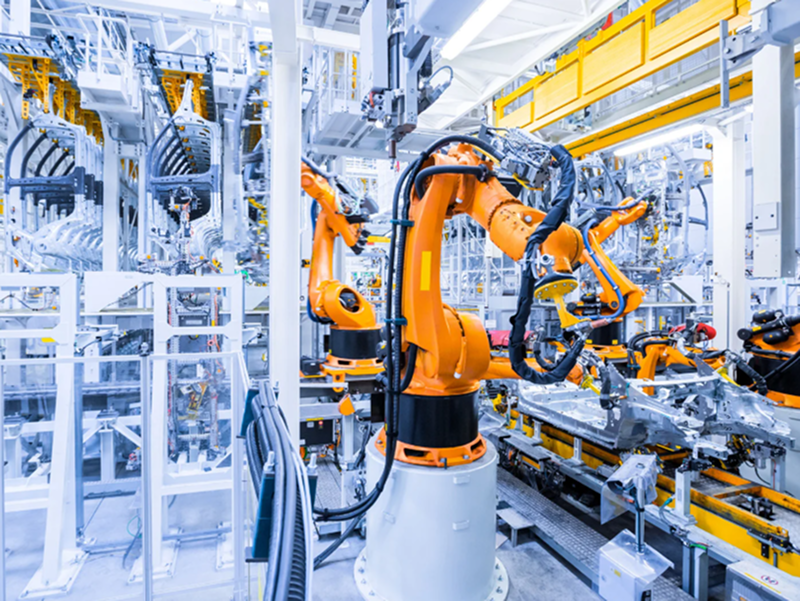In the era of the Fourth Industrial Revolution, automation is becoming one of the key elements driving the development of modern manufacturing facilities. More and more companies are investing in process automation solutions to increase competitiveness, improve product quality, and optimize costs. But how exactly does automation affect production line efficiency?
1. Increasing production speed and consistency
Automation makes it possible to significantly speed up tasks that would take much longer if performed manually. Industrial robots and automated assembly systems can operate continuously, 24 hours a day, while maintaining high precision and consistency. As a result, a production line can achieve much higher efficiency than traditional manual methods.
2. Reduction of human errors
People are invaluable in many aspects of work, but where accuracy and monotony are key, there is a risk of errors. Automation helps reduce these by eliminating issues related to fatigue, distraction, or inconsistency in task performance. The result is not only higher efficiency but also improved product quality.

3. Better resource management and production planning
Modern automation systems are often integrated with production management software (MES, ERP), allowing real-time monitoring of machine and production line performance. This enables quick detection of downtime, optimization of material and energy use, and more precise production planning.
4. Savings and quick return on investment
Although implementing automation involves initial investment costs, in the long run it significantly reduces operating expenses. Automated systems reduce the need for manual labor, minimize material waste, and shorten production time. As a result, companies can expect a fast return on investment (ROI), especially in serial or large-scale production.
5. Greater production flexibility
Contrary to popular belief, automation does not have to mean rigidity. Modern solutions – such as collaborative robots (cobots) or intelligent production lines – allow for quick reconfiguration of processes and adaptation to changing market demands. This is a major advantage in the era of customized production tailored to individual client needs.
Production line automation is not only a way to increase efficiency – it is also an investment in quality, reliability, and the future of the company. In times of growing competition and market demands, companies that embrace modern technologies have the opportunity to gain an advantage and grow sustainably.
If you are considering implementing automation in your facility or want to optimize existing processes – contact our team. We will help you find the best solutions tailored to your needs.

